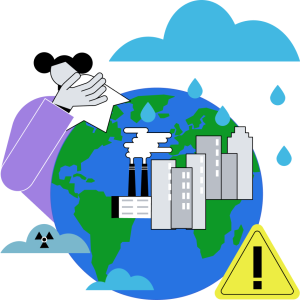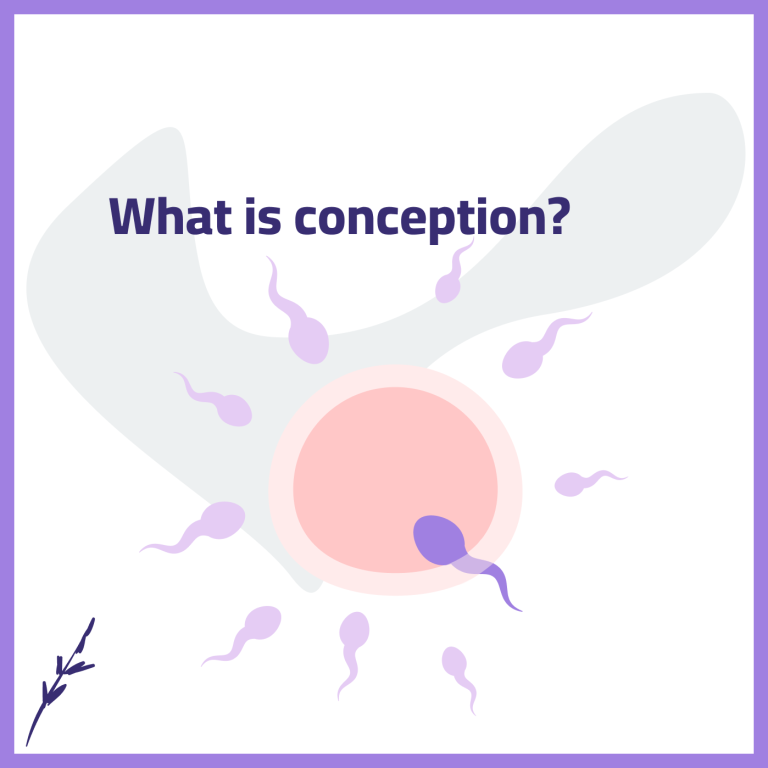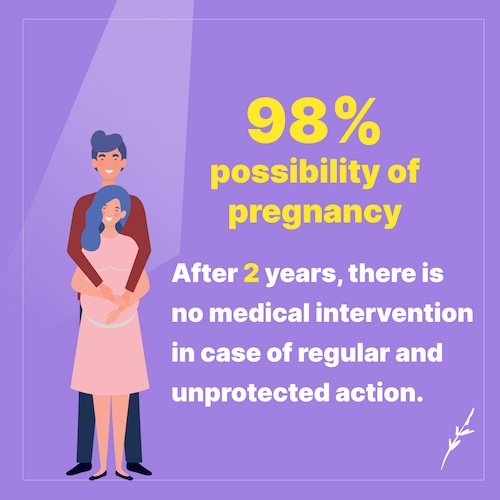The effect of Environmental factors on fertility
Environmental factors play a significant and often underestimated role in human health, particularly reproductive health. Fertility is not determined solely by genetics or individual lifestyle choices; it is also shaped by the environment in which people live, work, and grow. Exposure to pollutants, radiation, extreme temperatures, and infectious agents can interfere with reproductive function in both men and women, sometimes subtly and gradually, and sometimes in profound and irreversible ways.
The impact of environmental factors on fertility varies widely from person to person. Individual susceptibility is influenced by genetic makeup, age, sex, hormonal balance, lifestyle, geographic location, occupational exposure, and social conditions. In many cases, environmental exposures interact with other fertility-related factors such as stress, nutrition, smoking, and underlying medical conditions, amplifying their negative effects.
Understanding how environmental factors influence fertility is essential for prevention, early intervention, and long-term reproductive health protection.
How Environmental Factors Affect the Reproductive System
The reproductive system is particularly sensitive to environmental changes because it relies on finely tuned hormonal signaling, healthy reproductive cells (eggs and sperm), and well-functioning reproductive organs. Environmental stressors can disrupt this balance by:
- Altering hormone production or signaling
- Damaging the DNA of eggs and sperm
- Reducing the number or quality of reproductive cells
- Causing inflammation or scarring of reproductive organs
- Interfering with implantation or early embryonic development
Over time, repeated or prolonged exposure to harmful environmental factors can reduce fertility, increase the risk of miscarriage, or lead to long-term reproductive disorders.
Chemical Pollutants and Reproductive Health
Endocrine-Disrupting Chemicals (EDCs)
One of the most concerning groups of environmental hazards is endocrine-disrupting chemicals (EDCs). These substances interfere with the body’s hormonal system by mimicking, blocking, or altering natural hormones such as estrogen, progesterone, and testosterone.
Common sources of EDCs include:
- Pesticides and herbicides
- Plastics (such as bisphenol A and phthalates)
- Industrial chemicals
- Flame retardants
- Certain cosmetics and personal care products
EDCs can:
- Disrupt ovulation and menstrual cycles in women
- Reduce sperm count, motility, and quality in men
- Affect fetal development and increase the risk of birth defects
- Contribute to infertility and pregnancy loss
Because hormones regulate nearly every aspect of reproduction, even small disruptions caused by chronic exposure can have significant consequences.
Heavy Metals and Industrial Chemicals
Exposure to heavy metals such as lead, mercury, cadmium, and arsenic has been linked to impaired fertility. These substances can accumulate in the body over time and interfere with reproductive organs.
Heavy metals may:
- Damage sperm DNA and reduce sperm production
- Impair egg quality and ovarian function
- Increase the risk of miscarriage and poor pregnancy outcomes
- Affect fetal neurological development
Industrial chemicals found in manufacturing, mining, and agricultural settings pose particular risks for individuals with occupational exposure.
Radiation Exposure and Fertility
Ionizing Radiation
Ionizing radiation, including X-rays and gamma rays, has enough energy to damage DNA and chromosomes. Reproductive cells are especially vulnerable because genetic integrity is essential for successful fertilization and healthy embryonic development.
Radiation exposure can:
- Cause mutations in eggs and sperm
- Reduce sperm production or lead to temporary or permanent sterility
- Increase the risk of miscarriage or congenital abnormalities
- Raise the long-term risk of reproductive cancers
Medical imaging procedures are generally safe when used appropriately, but repeated or high-dose exposure—especially without proper shielding—can increase reproductive risks.
Ultraviolet Radiation
While ultraviolet (UV) radiation primarily affects the skin, excessive exposure can contribute to oxidative stress and cellular damage throughout the body. Chronic UV exposure may indirectly affect fertility by increasing systemic inflammation and impairing overall health.
Temperature Extremes and Reproductive Function
Heat Exposure
The male reproductive system is particularly sensitive to heat. Sperm production requires a temperature slightly lower than core body temperature. Prolonged heat exposure can impair this process.
Sources of heat exposure include:
- Hot working environments
- Frequent use of saunas or hot tubs
- Tight clothing that traps heat
- Prolonged laptop use on the lap
Heat exposure may:
- Reduce sperm count
- Decrease sperm motility
- Increase abnormal sperm morphology
Although some heat-related effects may be reversible, chronic exposure can lead to persistent fertility problems.
Cold Exposure
Extreme cold can also affect reproductive health, particularly by impairing blood flow and hormonal regulation. In women, severe cold stress may disrupt ovulation and menstrual regularity, while in men it may affect testicular function.
Infectious Environmental Factors and Fertility
Sexually Transmitted Infections (STIs)
Infections are an important environmental and biological factor affecting fertility. Sexually transmitted infections (STIs) such as chlamydia and gonorrhea are major causes of infertility worldwide.
Untreated infections can lead to:
- Pelvic inflammatory disease (PID) in women
- Scarring or blockage of the fallopian tubes
- Chronic pelvic pain
- Reduced sperm quality in men
Because many STIs are asymptomatic, individuals may be unaware of the damage until fertility problems arise.
Other Infections
Environmental exposure to infections such as tuberculosis can also affect reproductive organs. Genital tuberculosis, although less common, can cause severe damage to the uterus, fallopian tubes, and testes, leading to infertility.
Interaction With Other Fertility Factors
Environmental factors rarely act alone. Their effects on fertility are often intensified by:
- Genetic susceptibility
- Poor nutrition
- Smoking and alcohol use
- Chronic stress
- Advanced age
For example, exposure to pollutants combined with smoking may have a much stronger negative impact on sperm quality than either factor alone.
Protecting Reproductive Health From Environmental Hazards
While not all environmental exposures can be completely avoided, many risks can be reduced through awareness and preventive measures:
- Limiting exposure to pesticides and industrial chemicals
- Using protective equipment in high-risk occupations
- Avoiding unnecessary radiation exposure
- Practicing safe sex and seeking prompt treatment for infections
- Maintaining good ventilation and indoor air quality
- Supporting overall health through balanced nutrition and stress management
Public health policies and environmental regulations also play a crucial role in protecting reproductive health on a population level.
Final Thoughts
Environmental factors are a powerful and often overlooked influence on reproductive health and fertility. Exposure to pollutants, radiation, extreme temperatures, and infections can impair reproductive function in both men and women, sometimes with long-lasting effects. These environmental influences interact with genetics, lifestyle, age, and stress, shaping fertility outcomes in complex ways.
By increasing awareness of environmental risks and taking proactive steps to minimize exposure, individuals can protect their reproductive health and improve their chances of conception. Safeguarding fertility is not only a personal responsibility but also a societal one, requiring informed choices, preventive healthcare, and environmental stewardship.







